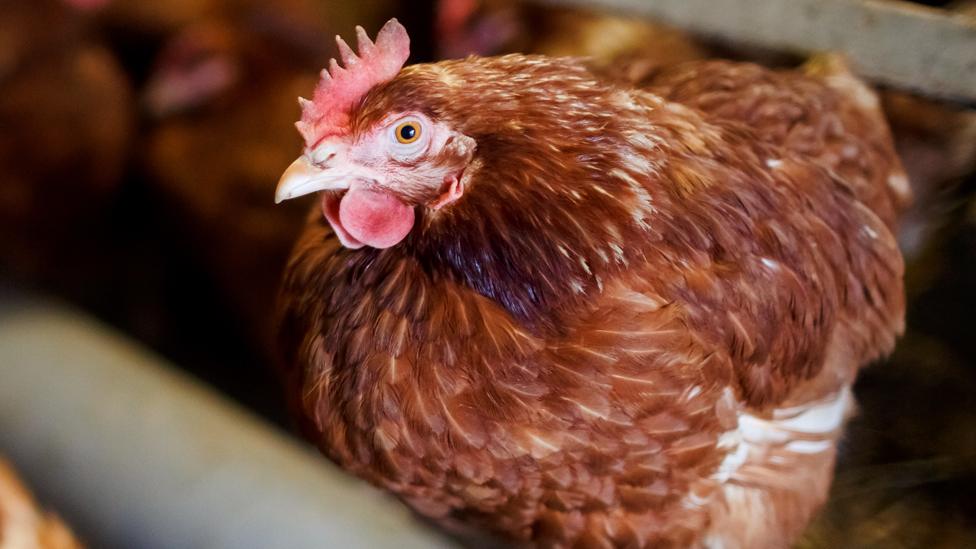Avian flu: Birds to be kept indoors from Monday
- Published
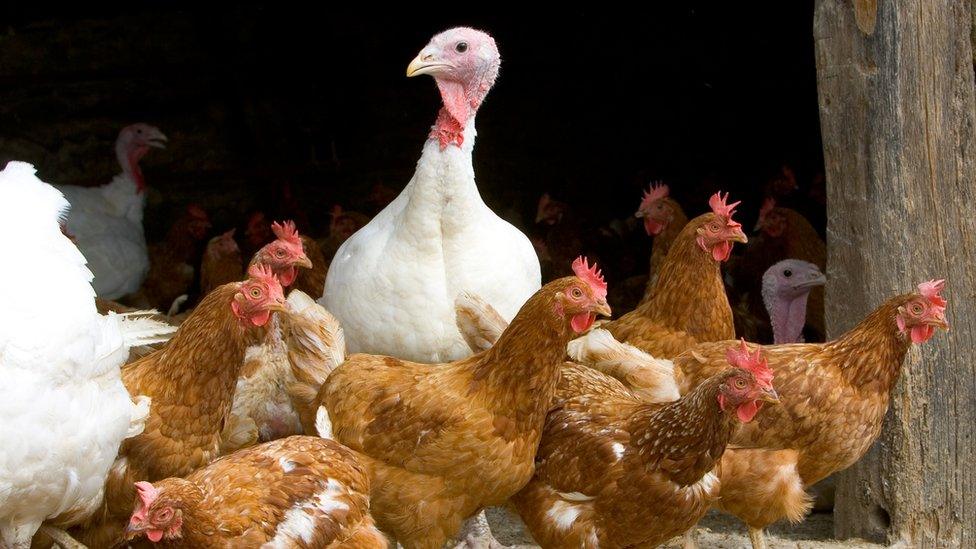
There has been a rise in avian flu cases across the UK and Republic of Ireland in recent months
All kept birds and poultry must stay indoors from midday on Monday to combat the spread of avian flu, the Department of Agriculture, Environment and Rural Affairs has said.
Owners of pet birds, commercial flocks, backyard and hobby flocks will have to keep birds indoors or otherwise separate from wild birds.
The legal order also includes a ban on certain bird gatherings.
It follows a rise in cases across Great Britain and Ireland in recent months.
In October, the department introduced stricter biosecurity measures for owners in Northern Ireland.
These included preventing wild birds having access to the same food and water as poultry or captive birds, and mandatory rules on cleansing and disinfection.
The further introduction of a mandatory housing order now brings Northern Ireland in line with the Republic of Ireland and England.
So far this year in Northern Ireland alone there has been one confirmed case of avian flu in a captive bird holding.
There have also been 21 confirmed wild bird cases of avian flu since April.
'Take immediate action now'
Speaking following the announcement on Friday, Northern Ireland's chief veterinary officer, Dr Robert Huey, said it was vital bird owners take the measures seriously.
"Avian Flu is a cunning and determined virus and will exploit any and all gaps in your biosecurity, which is the best defence you have against an outbreak," Dr Huey said.
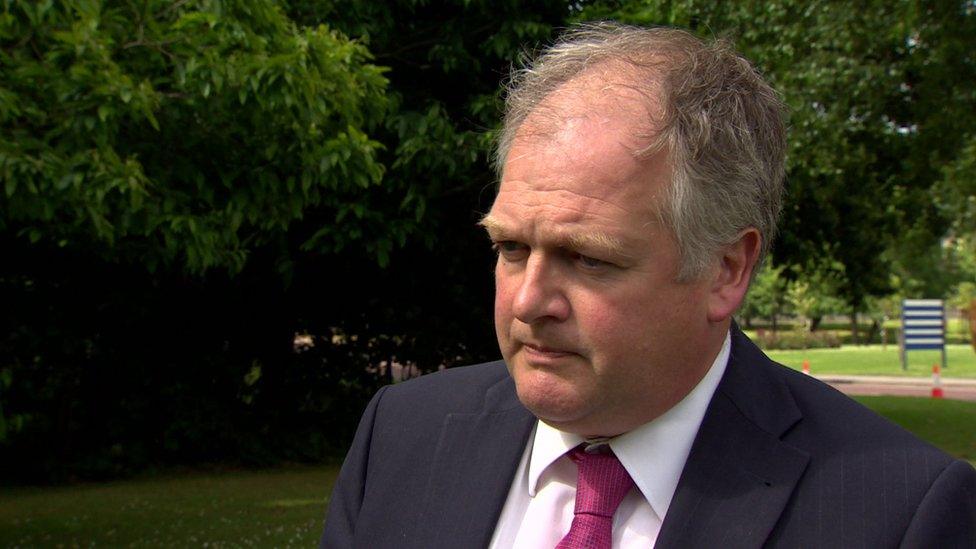
Dr Huey said there were several steps people can take to help combat the rise in avian flu
"No one is safe from an incursion and cases in NI will increase significantly over the coming months unless we all take immediate action now."
Dr Huey said any avian flu incursion into a flock, or even a small captive bird holding, can have "significant consequences not just for the owner but for wider industry and our ability to trade".
Dr Huey said that as well as the housing order, there are also a range of other actions people can take to protect their flock.
These range from ensuring feed and bedding is protected from rodents and wild birds to regularly cleaning footwear every time someone visits birds.
"These actions should become a regular, repetitive and instinctive part of your bird-owning routines," he said.
"These are not one-off events, but something you should do every single day, and come as naturally as providing food and water for your birds."
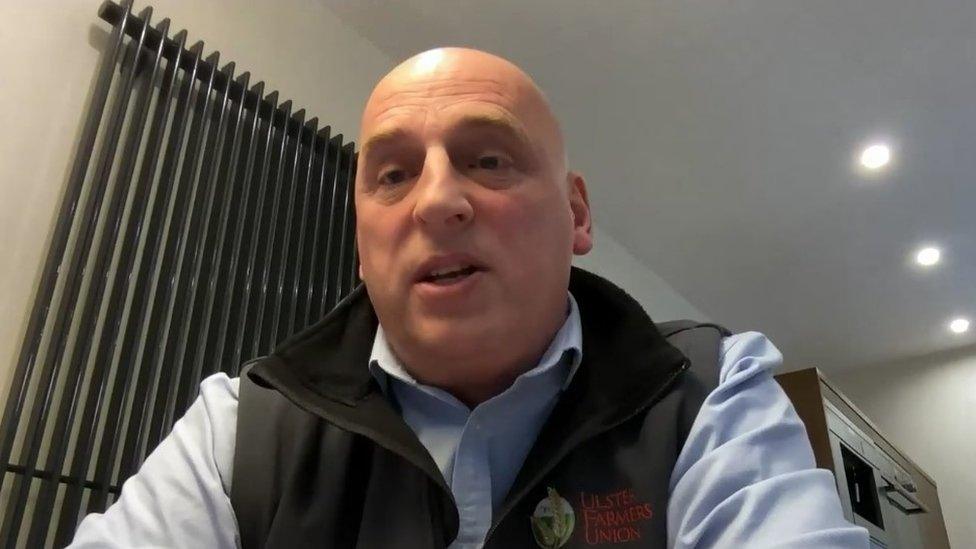
John McLenaghan from the Ulster Farmers' Union welcomed the department's decision
The deputy president of the Ulster Farmers' Union, John McLenaghan, said that to date the disease had been kept "largely at bay" but welcomed the new restrictions in Northern Ireland.
He said the industry is worth £450m a year to the Northern Ireland economy and mitigating any risk to flocks is necessary.
"There comes a point where we have to make that decision," he said.
"It's not something we want to have to do but we recognise that in the circumstances we are in, it is the best thing for the industry that this decision has been taken."
Mr McLenaghan also played down the possibility of any potential negative impact on supply to the Christmas turkey market.
"We are not seeing any indication of that yet," he explained.
Related topics
- Published9 December 2021
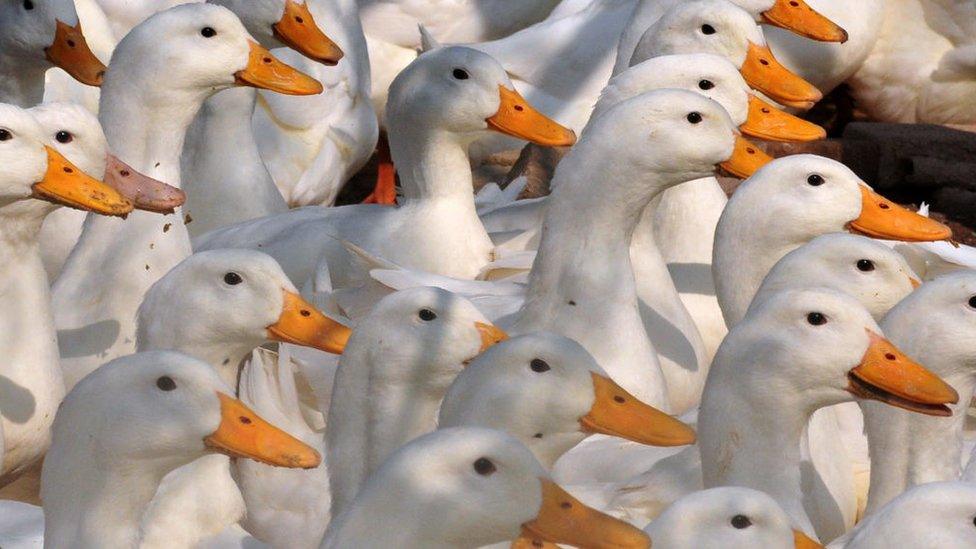
- Published3 October 2022
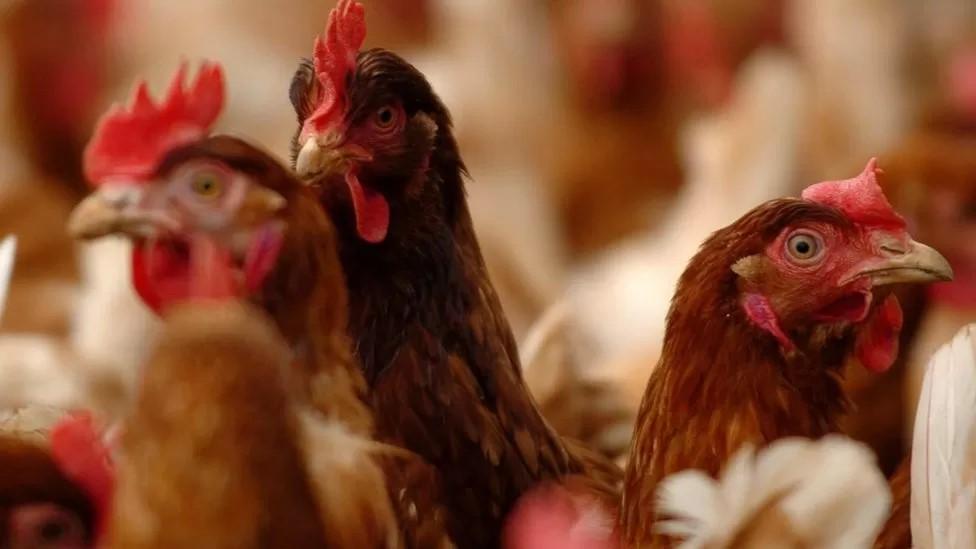
- Published31 October 2022
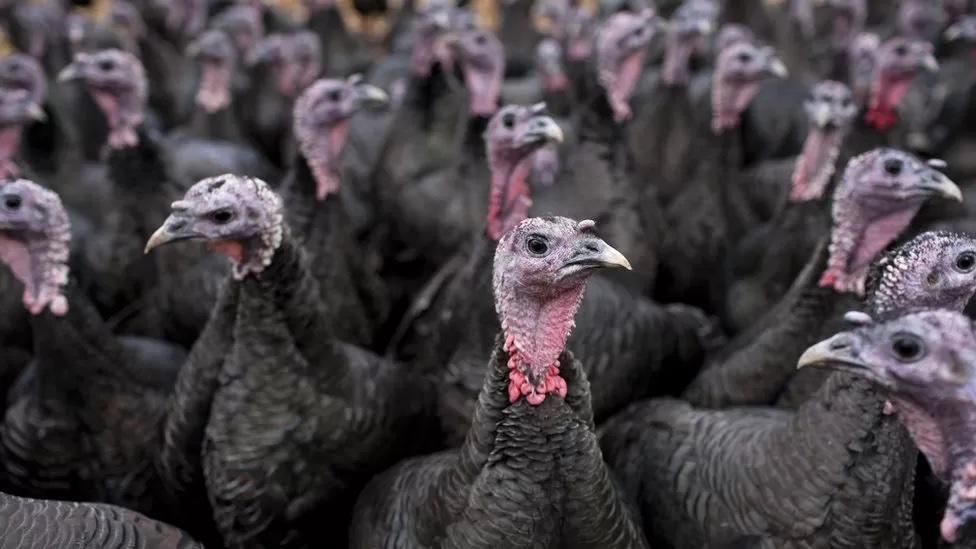
- Published17 October 2022
